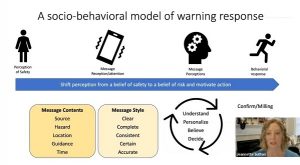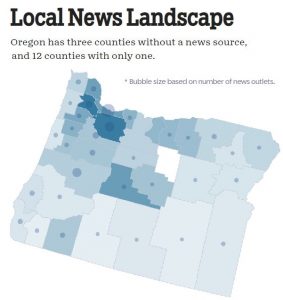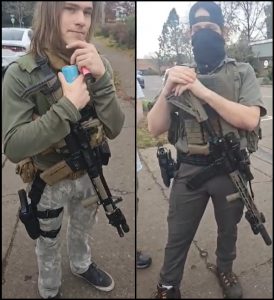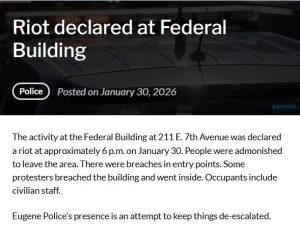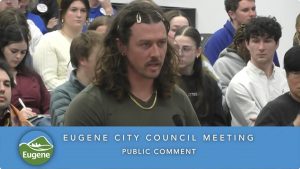Rob Tobias interviews Lew Schneider on the writers strike
8 min read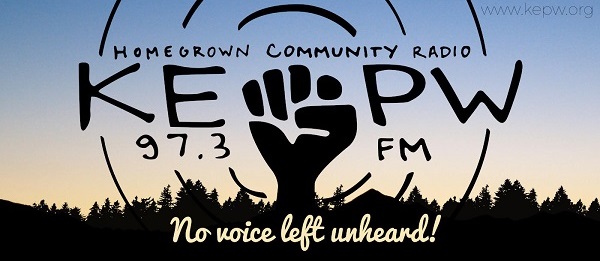
Rob Tobias (KEPW, Train of Thought): My name is Rob Tobias. Today, my guest is Lew Schneider. You got into comedy and you did some acting. In more recent years, you have been the writer on “Everybody Loves Raymond” and also on “The Goldbergs.” The Writers Guild of America went out on strike for the first time since 2007-2008 and Lou is here to talk a little bit about what’s going on. Welcome.
[00:00:26] Lew Schneider (Writers Guild, SAG-AFTRA member): Thank you. We are also on strike in SAG-AFTRA, so yeah, I’m out on the picket line in two unions.
[00:00:32] Rob Tobias: So both actors and writers are on the same picket line? (Mm-hmm.) But you’ve been out a little bit longer. The writers have been out a little bit longer.
[00:00:39] Lew Schneider: Yeah. It was funny to watch the actors come out. We’d already been on strike 73 days or something like that, who’s counting? but 73 days and to see the actors come out with the spring in their step and their bright eyes (Yeah), their hopeful smile.
[00:00:54] And one of my crusty old writer friends jerks a thumb in my direction, says, ‘Look at the freshmen, look at the freshmen.’
[00:01:02] But it’s good. I think they are more hopeful now that there’s two unions striking. I think it was always easier to think of the writers as just malcontents and ne’er-do-wells and crazy. But now that you have all these other malcontents and ne’er-do-wells and crazies out there, there’s a little more oomph in this.
[00:01:17] In fact, today, a very good showing, we had a particularly vocal group of actors on the line today, and they were really chanting it up.
[00:01:25] I’ve been on strike in New York because we were visiting a kid in New York. and I saw, ‘Oh, there’s a picket in New York.’ So I went over there and picketed and then when we got back, I noticed the stark differences between the LA and the New York pickets. In New York, there’s a fair amount—
[00:01:41] First of all, the police have you penned in the same barriers you see on TV when they do a crowd thing for New Year’s in Times Square, those bicycle-rack-looking fences, temporary fences. And so they’ve got the writers penned in in those things.
[00:01:54] And there’s some aggressive milling about, but the writers are walking in a pretty short circumscribed area and there’s a fair amount of chanting. There’s someone with a bullhorn, there’s someone reading from a list of chants on a piece of paper.
[00:02:08] And in LA it’s not the same really. In LA there’s way, you know, you’re trying to get, you love when people honk at you and support but you’ll be walking, you’re holding your sign and then start talking about, you know, ‘Oh, I’ve never eaten there for brunch. I know that they have a breakfast,’ and then someone honks and you kind of shake your sign at them like, ‘Yeah, thanks, buddy.’ And then you go back to, ‘Yeah, but it’s this, you know, that chef trained at Ludo and he’s really good.’ And then immediately beep, beep, beep. ‘Yeah, yeah, I know. Yes, yes, yes. Fight the power. Yes.’ And so it’s very casual and much more kibitzing in LA than in New York
[00:02:45] Rob Tobias: What are they chanting?
[00:02:46] Lew Schneider: Just the sort of standard kind of things like ‘Fists up, pens down. LA is a union town’ or ‘New York is a union town.’ There’s also ‘What do we want? Contract! When do we want it? Now!’ Which really applies for labor everywhere.
[00:02:59] So that goes pretty well. In New York, it went so well with some of those early chants that they got a little aggressive and it all fell apart. This one guy who was feeding the chants. I don’t know if he’s officially a union employee or he’s just another writer out there with the rest of us, but he says, ‘What do we want? Fair deal. When do we want it? Now!’ And it did pretty well, got some momentum.
[00:03:20] And then he went to the next chant. ‘What do we want? A better definition of residuals and foreign markets.’ And boy, once he got that: ‘Too wordy!’ As writers, we’re all looking for edits. No, too wordy. Yeah. No, it didn’t work.
[00:03:34] Rob Tobias: Doesn’t rhyme.
[00:03:35] Lew Schneider: Yeah. It doesn’t rhyme, but the rhyming ones can be a bit silly. There was a ‘You say A.I., I say bye-bye.’ And I had to bow out. I actually changed gates. I went and picketed at a gate where the chants were better. I left.
[00:03:52] Rob Tobias: Tell me about the locations. Who exactly are you picketing?
[00:03:55] Lew Schneider: A number of different locations in LA. I did a lot of work at Sony over the last 10 years. And so I’m pretty used to driving to Culver City, which is where Sony is located. So I picketed at Sony and I picketed at Amazon. I actually like the gate. I like that there are two gates that you picket. The walk is not wholly unpleasant. There’s a lot of good traffic that comes by, so they give you a lot of support. People beep at you in support.
[00:04:19] A lovely woman, the very first day, came out of her house and said, ‘Do you need anything?’
[00:04:24] And I said, ‘Yeah, I need for people to stop using Amazon.’ And she says, ‘I don’t use Amazon very much.’ And I said, ‘Could you tell 140 million people?’ And then she offered me, she said, ‘If you guys need a bathroom or a cup of coffee or something, you know, feel free to come by.’ I haven’t seen her since, but she was very nice.
[00:04:42] And so I feel like the public has been really supportive in this one in ways that they were not necessarily in the last one. So it’s been encouraging to this point, but it’s going to get longer and we’ll see how we do.
[00:04:54] Rob Tobias: Let’s get down a little bit to what we’re striking about. Tell me about how you used to get paid.
[00:05:00] Lew Schneider: What used to happen is you made a certain amount in the same way that an author who writes a book, you get a certain advance for the manuscript, and then if the book sells a certain number of units, it’s been negotiated that you will then see residual earnings on that manuscript.
[00:05:19] It’s the same way with TV. You’d write a draft of a script, and then as the show re-ran, with each additional use of the show, you would then receive additional payment. It didn’t always stay the same.
[00:05:32] In other words, it would start at a certain level for a network primetime rerun, and then it would drop. And they, there are people at the Guild, at the Writers Guild, who keep track of how many times your shows have aired, and you got paid accordingly.
[00:05:43] That ’07-’08 strike was about what do you pay someone for a script written for a streaming service because that wasn’t part of the original agreement, so of course, the company said, just keep writing. And, you know, we’ll figure it out. And we just said, No, we want to, let’s define the percentages now.
[00:06:01] But between then ’07-’08 and now these publicly-held companies, they are making whatever profits, but our money has stayed the same.
[00:06:11] Rob Tobias: The percentage of it is more. Shouldn’t it have gone up?
[00:06:13] Lew Schneider: And that’s not just the Writer’s Guild. Another part of this strike is that this is a strike way more about labor as a whole in this country. Eighty percent of the Actors Guild makes under $26,000 a year. But the people showing these shows, the production companies and the studios, they’re showing profits and we just want our share of that in the same way that you know, people who run hotels, teachers, transportation workers, everybody needs to keep pace with the cost of living and it’s just not happening.
[00:06:44] I mean, I worked on these dinosaur shows where these were network sitcoms that ran 22 episodes or more a year, but that’s not the model anymore. My son wants to be a writer and he’s facing short orders and shows that may only do eight or 10 a year and show no residuals and that’s not a way to make a living.
[00:07:02] And as the business has contracted, they’ve squeezed the writers on that. And I think, depending on the show, there needs to be some sort of minimum for writers. I don’t know what that is. And I, it would depend, to me, it depends on the show.
[00:07:12] Rob Tobias: Do you also negotiate whether you get to be paid to be on set or not?
[00:07:17] Lew Schneider: Well, on “The Goldbergs,” I was the guy on set after day three or four, all of my time was really on set and eventually I became a director on that show and that came about because I knew some of the actors pretty well, and they felt comfortable having me make changes on the fly.
[00:07:33] So there was something that wasn’t working. Sometimes I would call upstairs and say, ‘We’re having this problem with the script,’ or sometimes I was able to go, ‘You know what, we can make this easier, let me change this.’ And so that’s where a writer on set is really valuable and you want them to be guaranteed a writer on set. That’s probably another part of this negotiation.
[00:07:50] Rob Tobias: How long is it going to go for?
[00:07:54] Lew Schneider: That’s the $372 million question.
[00:07:56] I have a friend who’s a camera assistant, and at first, he was mad at the writers. He said, ‘Why aren’t the writers going back to work? Our contract’s no good and we go to work.’ And my answer to him was, ‘You should be on strike. Don’t blame the writers. The writers are the tip of the spear here.’
[00:08:12] ‘There’s a labor and wages problem in this country. And we’re all getting hosed. You have to stick up for yourself.’ I think they do see that and their union is doing that as well. IATSE is going to go out probably at some point.
[00:08:24] Rob Tobias: My guest today has been Lew Schneider on “Train of Thought.” Thank you so much. Is there something I haven’t asked that I should have asked?
[00:08:33] Lew Schneider: No, just support your local laborer (Yeah), be they a writer or anything else. People need to feed their families.
[00:08:41] Rob Tobias: Thanks for spending some time with me. I appreciate it.
[00:08:44] Lew Schneider: Sure. Be well.
Listen to Rob Tobias and Train of Thought every Saturday at 3:30 p.m. on KEPW 97.3 FM.

